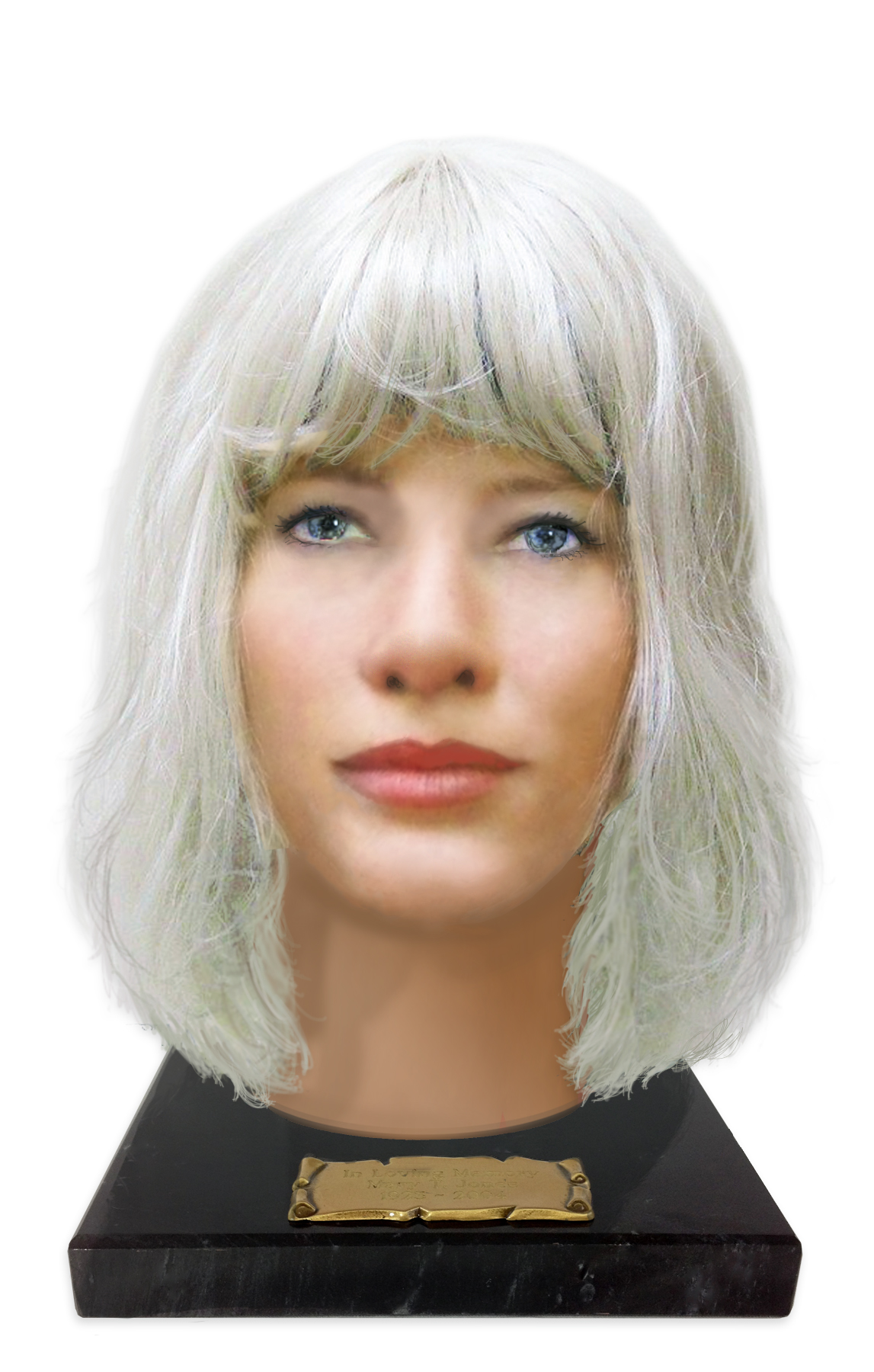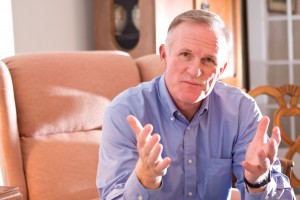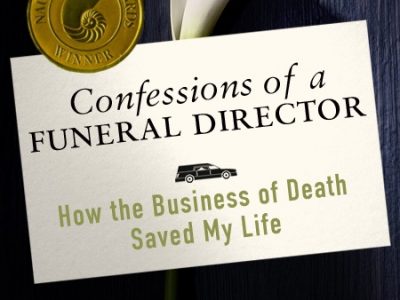Make Your Face into an Urn
If you want the details on how you can turn your face into an urn, you can click here. Otherwise, just enjoy these four slightly creepy but neat personalized urns from Cremation Solutions.
1. This one’s my favorite ….

2. And who wouldn’t want to put their ashes in Barack Obama’s head?

3. I think this one is Elizabeth Hurley.

4. Cate Blanchett. Lord of the Rings fans can put themselves in Cate’s head.

Whose head would you want to put your ashes in?
Why I’m a Political Atheist: Part 1
I’m okay with people who divinize political power. I used to be one. After reading my fair share of classic and modern political philosophy, I became disillusioned and lost my faith in the power of Politics.
I stay up-to-date on the debates and I vote according to my conscious, but I do so with vapidity.
I don’t believe in the power of the federal government to affect internal change. I haven’t seen it change people in my city, in my home town, on my street. I’ve seen my friends change my city, I’ve seen concerned citizens transform my hometown, but not Washington.
I don’t get stirred at the groupthink evangelistic DNC and RNC conventions where the faithful worship in blind faith … where the fundamentalists gather and pat themselves on the back.
I’ve cut my personal ties to the symbolic immortality that so many within politics seek. If I die, and my political ideology isn’t in power, I’ll be okay. If I die and America isn’t the America of our forefathers, I will still rest in peace. I don’t smoke the opium of politics that promises my tribe’s eternal life if we can only gain back control from the “others.”
All the pie-in-the-sky political talk seems to limit what the faithful do in their own town. The faithful post their token facebook messages, they stick their candidate’s signs in their front yard and may even work with their party’s local chapter, but they’re so idealistically minded that they’re no local good. Where are the faithful when someone next door goes hungry? I’ll tell you where: they’re so busy siting on their easy chair watching CNN, MSN or FOX that they haven’t even noticed the poverty on their own street.
If they spent half the time acting on their ideals instead of talking about them they might actually begin to see the change they’re looking for. Hypocrites. Have you ever met a VERY political person who you would consider a great person? Isn’t it generally assumed that politics turns good people into liars and irrational egoists who breath in their own self made delusional promises?
It seems that politics takes the energy of the many and places it at the feet of the few. And if the many would take their own energy and instead invest it in things they cared about on a local level, the few would take heed and then the system would change.
The faithful will say that political atheists like me aren’t good for society … for civilization … for Washington. And they might be right. I’m not good for Washington. But, if they want to tell it to my face they can find me on the streets of Parkesburg, where I mentor at-risk youth, helping them graduate high school, succeed in the work place and seek higher education.
What really gets me, though, is that those who believe in the power of politics really believe that their brand of laws and government can cause lasting change. As government is the only way to change.
What is “it” that the government can change anyway? And in what way can “it” change? Can the government change the “it” of supposed godlessness in the families of America? Many red bleeding “Christian” republicans think it can. They want God back in the government … because they assume that God likes to work through law?
Can the government change the “it” of poverty in those in the lower class? Many blue hearted liberals think it can. They want the federal government to solve social ills that are intrinsically local and internal by nature. Like trying to catch a whale with a bear trap, they think social ills can be healed by programs and finances.
At this time in the political season, through the drum of political facebook posts, the incessant coverage from CNN, MSN, and FOX, I dig my heels into the ground and become more convinced of my position: I’m an atheist. The all-powerful god of politics doesn’t exist. And he has no power to cause lasting change. If he does exist, he has such limited power that he’s doesn’t deserve the adoration he’s receiving. There’s no historical proof, no proof in personal experience and no reason to believe in the deity of political power.
I’m a political atheist because at the end of the day, politics can’t transform, they can only guide.
*****
Postscript: This is a provocative piece that uses some broad strokes. I’ll remove the black and white tone of this piece in “Part 2.”
5 Ways to Avoid Burnout
There’s a difference between burnout and compassion fatigue. Burnout in the workplace is a more general term that relates to anybody in a stressful situation, while compassion fatigue is a phenomena that specifically relates to those of us who are professional caregivers.
Being that funeral directors are susceptible to compassion fatigue AND have an uncontrolled work environment, we are especially vulnerable to burnout.
Here are five strategies to avoid burnout as advised by the Handbook of Thanatology:
1. Practice responsible selfishness, recognizing one’s own needs as important as the needs of others. The external demands imposed on the professional helper coupled with the internal belief that one’s own needs are secondary to those of others can significantly drain a person’s emotional energy.
2. Separate work from home. Use the transition time between work and home to “emotionally decompress”, or “shift gears.” Techniques such as mental imagery, e.g., visualizing the pressures of work evaporation; distraction, e.g. listening to music during the drive home; or getting physical exercise, can be helpful.
3. Develop positive support groups, either formal self-help groups or informal empathetic groups.
4. Remember to laugh. Laughter offers tremendous benefit and can provide a powerful antidote to the toxicity of chronic stress.
5. Redefine “success.” For professionals who are passionately dedicated to their work and have a strong desire to be successful, a sense of personal failure is a tremendous source of stress and burnout. (from page 384).
Ritual: The Muscle Memory of Grief
Over the past couple months, I’ve been contemplating why the West (America, Europe, etc.) has so much aversion to death, while other — less “developed — cultures see death as less alien. I’ve come up with two major reasons:
One. Modernity.
Our modern world takes death care away from families and puts it in the hands of “professionals”, thus industrializing death. Instead of the dying dwelling at our homes, we give them to nursing homes. For more of my thoughts on this, here’s an article I wrote.
The modern world also likes providing answers to life’s questions. So when death comes with its silence and mystery, we are rendered uncomfortable.
Two. We lack ritual. There’s three reasons why there’s a lack of ritual:
1.) We tend to be individualistic, which isn’t necessarily bad, but it produces a lack of community.
2). We tend to dislike tradition.
3.) We are becoming post-religious.
The following is my (rather poor) attempt to explain why the lack of ritual increases our aversion to death.
*****
Muscle memory is what separates the professionals from the amateurs.
Muscle memory is what enables musicians to thoughtlessly play complicated music with near perfection.
Muscle memory is the product of laborious habit that makes incredibly difficult tasks seem like minutia.
I just came back from indoor rock climbing.
I’ve seen athletic and strong newbies come to the gym and they look like fools trying to climb routes. Falling down on their bums, scraping their arms up and getting all nervous when they get to the top of the route.
Climbing is both strength and technique muscle memory. And while newbies may be strong and athletic, if they don’t know how to move their bodies on the wall, they’re destined to fall and fail.
*****
Grief is similar. The walls of bereavement are very intimidating to even the spiritually and psychologically strong. It doesn’t matter how whole you are, you will fall and you will fail.
Unless you enter through the trodden paths of ritual.
The muscle memory of grief is ritual. Ritual allows us to take the incredibly difficult task of mourning and find a way to persevere, even when it seems we shouldn’t.
Muscle memory is usually something you or I create through practice. I climb routes at the climbing gym, my muscles get used to moving a certain way.
You practice the guitar day in and day out and your fingers move like jazz.
This is where the whole muscle memory analogy starts to fall apart when we relate it to grief.
While a professional’s muscle memory is something he or she created, death ritual muscle memory is something our community has created and it can only be “learned” within community.
You didn’t create it. It’s something we inherit … or something we can join.
*****
This from Alla Bozarth in “Life Is Goodbye, Life is Hello: Grieving Well Through All Kinds of Loss”:
Funerals are the rituals we create to help us face the reality of death, to give us a way of expressing our response to that reality with other persons, and to protect us from the full impact of the meaning of death for ourselves.
The problem is this: so many of us have disconnected ourselves from community, tradition and a religion that we’ve never received the graces of grief ritual.
If we have community in place,
if we embrace tradition in times of death
and we’re willing to involve the motion and movement of religion,
we may find life and meaning in a task that many onlookers see as insurmountable.
Ritual doesn’t allow you to overcome grief (grief may never be overcome). It doesn’t allow you to work through your grief faster. Nor does make death more tolerable. And it certainly won’t make you a “professional.”
Ritual allows you to confront a seemingly impossible task in the context of community.
Why is the West so adverse to death? Because devoid of ritual, confronting death is like asking me to play Beethoven’s Piano Sonata No. 23.
Mourners Dare to Imagine what Others are Feeling
Today’s reflections on the recent shootings in Aurora, CO. come from Don Follis, a pastor in Champaign-Urbana, IL.
*****
At 7:30 am my wife and I took the boat across Jenny Lake and hiked 7 miles up Cascade Canyon to Lake Solitude in Grand Teton National Park in Northwestern Wyoming. From Lake Solitude, high above tree line, you can view the back side of the majestic Teton Range and bask in the wonder of creation.
As we drove back to our campsite I turned on the radio and heard the news of the horrific shootings in Aurora, CO. I was shocked. Life is so fragile. Idyllic, serene Lake Solitude – a perfect name given its location – gave way to the stunning news of the senseless killings and maiming in an Aurora theater. Feelings of appreciation and wonder earlier in the day suddenly collided with emotions of tension, mystery, paradox and complexity.
A few days later I was standing on the western shore of Lake MacDonald in northern Montana’s Glacier National Park when I overhead two men discussing the Aurora tragedy.
“It was pure evil,” one man said. “There is nothing else to say.”
The other man was intent on blaming guns. “Why is it so easy to buy guns?” he said. “Can’t we as a nation do anything about this? I’ll tell you this country needs a national discussion about how easy it is to buy firearms.”
The man who spoke first sighed. “The poor young man who did this is just sick, just very, very sick. How utterly senseless. It makes me so sad for all those innocent people and their grieving families.”
Now he’s getting somewhere, I thought. Later that day I turned to the beatitudes and read these words of Jesus: “Blessed are those who mourn, for they will be comforted.”
The writer of Ecclesiastes said there is a time to weep and a time to mourn. The days following tragedies are times to mourn. Real mourning, true grieving, humbly says, “I am so sorry. I can only imagine how the families must feel who lost a loved one. I can only imagine how those who were maimed must feel. I can only imagine how the family members of the shooter must feel. This is so heartbreaking, so sad.”
Mourning does not say: “As horrific as this was, we know God works all things together for good, if we turn to him. Evil will not win the day. Now is the time to stand up and fight.” Those phrases may be true. But is that what you would want someone to say to you, if you had just tragically lost a loved one? I doubt it.
Neither does mourning say: “I’ll be there for you, whatever you need. You are in my prayers every single minute.” Well, maybe you will be there. Maybe you will pray for a while. But what are you really saying? Are you actually saying: “What happen scares me so much and I don’t know what to do. What if it was my child? I could never face this if it were me.”
Finally, mourning does not say: “I just can’t imagine what you are going through.” Really? Maybe you ought to try to imagine. A person who mourns never denies what happened. True mourning is not afraid of suffering. No, a person who truly mourns tries to imagine how another feels. Thus, you might say something like: “I’m so very sorry. I can only imagine how you are feeling.”
To imagine how a grief-stricken person feels takes intentionality. Imagine being the parent of one of those young people killed in the theater on that awful night in Aurora. Or imagine being the father or mother of the young man who did this awful deed.
“I don’t want to imagine that,” you say. “Please don’t make me. It’s too awful, too hard, too painful, and too scary. I can’t go there.” Well, okay. I certainly can’t make you. But you will not fully understand mourning unless you engage your imagination and your emotion. That’s what mourning is. You enter right into the middle of the grief-stricken person’s world. Are you afraid of crying? You may cry. You think you might blubber or sigh or moan? You might. Are you afraid that giving yourself emotionally to mourning might feel scary? It will.
But mourning is a good thing, Jesus says. Comfort comes to those who mourn. The Apostle Paul explains it when he says, “Rejoice with those who rejoice. Weep with those who weep.”
Now let’s say, for example, that your son or daughter hits a home run during a little league game. They are thrilled and so you are you. You scream, “My goodness sweetheart, that’s the best hit I’ve ever seen. What a slugger.” That’s rejoicing.
How does that make the son or daughter feel? Loved, naturally. They think, “My daddy thinks I’m the best thing ever.”
Now imagine you know a family who has experienced a tragic loss. Enter their world by imagining how they feel. You mourn by saying, “I can only imagine,” not “I can’t imagine.” You become focused and intentional about feeling painful emotions – grief, pain, loss and despair. You may begin weeping or sobbing as you try to say: “I am so sorry. I love you. I can only imagine your pain and loss.”
How do they feel when you join them in their pain and sorrow? They feel loved and cared for. When we enter another person’s painful emotional space, the person feels loved. The feeling of love is the same as it is for the child who hit the home run. That’s what it means to rejoice with those who rejoice and weep with those who weep.
The grieving people in Aurora need love, not theological explanations. There is a time to weep and a time to mourn. Both are on the path that leads through the valley of the shadow of death. Don’t be afraid to walk on that path.
*****
 Don Follis is a long-time (30-year) pastor in Champaign-Urbana, Illinois, a college town (University of Illinois) in East-central Illinois.
Don Follis is a long-time (30-year) pastor in Champaign-Urbana, Illinois, a college town (University of Illinois) in East-central Illinois.
Don first worked as a campus pastor, then on the staff of a large Vineyard Church and now with pastors in a coaching and mentoring ministry.
He writes a popular Sunday column called “On Faith” for the Champaign-Urbana, IL, News-Gazette.
Copyright 2012 by the Champaign-Urbana News-Gazette, Champaign, IL 61820.

